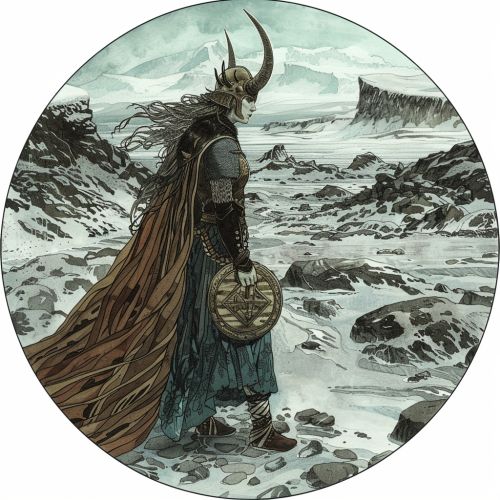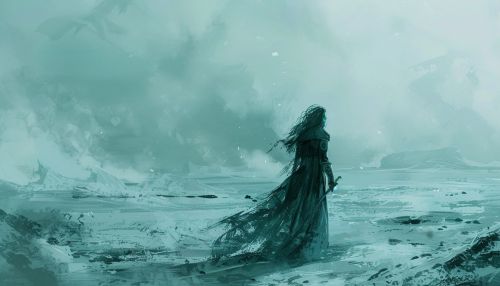Angrboda
Angrboda
Angrboda is a prominent figure in Norse mythology, known primarily as a giantess and the mother of several significant mythological beings. Her name translates to "the one who brings grief" or "she who offers sorrow," reflecting her association with foreboding and calamity. This article delves into her mythological background, her offspring, and her role in the broader context of Norse cosmology.


Mythological Background
Angrboda is often depicted as a jötunn, a race of giants in Norse mythology. The jötnar are typically portrayed as antagonistic forces against the gods, particularly the Aesir. Angrboda's origins are somewhat obscure, but she is frequently associated with the realm of Jotunheim, the land of the giants. Her role in the myths is primarily defined through her relationships and offspring.
Offspring
Angrboda is most famously known as the consort of the trickster god Loki. Together, they had three notable children, each of whom plays a crucial role in Norse eschatology and mythology:
Fenrir
Fenrir, also known as Fenrisúlfr, is a monstrous wolf prophesied to bring about significant destruction during Ragnarök, the end of the world in Norse mythology. Fenrir's immense strength and ferocity led the gods to bind him with a magical chain called Gleipnir, forged by dwarves. Despite their efforts, it is foretold that Fenrir will break free during Ragnarök and devour the god Odin.
Jörmungandr
Jörmungandr, also known as the Midgard Serpent, is a colossal sea serpent that encircles the world of Midgard. According to myth, Jörmungandr is destined to engage in a deadly battle with the god Thor during Ragnarök. Their confrontation is one of the central events leading to the cataclysmic end of the world.
Hel
Hel is the ruler of the realm of the dead, also named Hel, which is located in the underworld. She presides over those who did not die a heroic or notable death. Hel's domain is described as a cold and dreary place, in stark contrast to the more glorified afterlife in Valhalla. Her role in Norse mythology underscores the duality of life and death, and the inevitability of mortality.
Role in Norse Cosmology
Angrboda's significance extends beyond her offspring. As a giantess, she embodies the chaotic and untamed aspects of the cosmos, which are in constant opposition to the order represented by the gods. Her relationship with Loki, a god known for his mischief and unpredictability, further cements her position as a harbinger of chaos.
The offspring of Angrboda and Loki are central to the events of Ragnarök, highlighting her indirect but pivotal role in the prophesied destruction and rebirth of the world. This duality of creation and destruction is a recurring theme in Norse mythology, with Angrboda and her progeny serving as key agents in this cosmic cycle.
Interpretations and Legacy
Angrboda's character has been the subject of various interpretations in modern scholarship. Some view her as a symbol of the natural world's uncontrollable forces, while others see her as a representation of the inevitable decay and destruction that precedes renewal. Her legacy endures in contemporary retellings of Norse myths, where she is often portrayed as a powerful and enigmatic figure.
